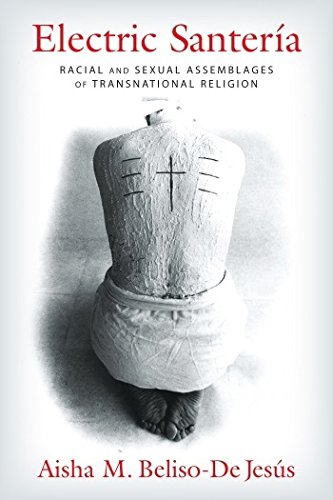

Most ebook files are in PDF format, so you can easily read them using various software such as Foxit Reader or directly on the Google Chrome browser.
Some ebook files are released by publishers in other formats such as .awz, .mobi, .epub, .fb2, etc. You may need to install specific software to read these formats on mobile/PC, such as Calibre.
Please read the tutorial at this link: https://ebookbell.com/faq
We offer FREE conversion to the popular formats you request; however, this may take some time. Therefore, right after payment, please email us, and we will try to provide the service as quickly as possible.
For some exceptional file formats or broken links (if any), please refrain from opening any disputes. Instead, email us first, and we will try to assist within a maximum of 6 hours.
EbookBell Team

5.0
38 reviewsSantería is an African-inspired, Cuban diaspora religion long stigmatized as witchcraft and often dismissed as superstition, yet its spirit- and possession-based practices are rapidly winning adherents across the world. Aisha M. Beliso-De Jesús introduces the term "copresence" to capture the current transnational experience of Santería, in which racialized and gendered spirits, deities, priests, and religious travelers remake local, national, and political boundaries and reconfigure notions of technology and transnationalism.
Drawing on eight years of ethnographic research in Havana and Matanzas, Cuba, and in New York City, Miami, Los Angeles, and the San Francisco Bay area, Beliso-De Jesús traces the phenomenon of copresence in the lives of Santería practitioners, mapping its emergence in transnational places and historical moments and its ritual negotiation of race, imperialism, gender, sexuality, and religious travel. Santería's spirits, deities, and practitioners allow digital technologies to be used in new ways, inciting unique encounters through video and other media. Doing away with traditional perceptions of Santería as a static, localized practice or as part of a mythologized "past," this book emphasizes the religion's dynamic circulations and calls for nontranscendental understandings of religious transnationalisms.